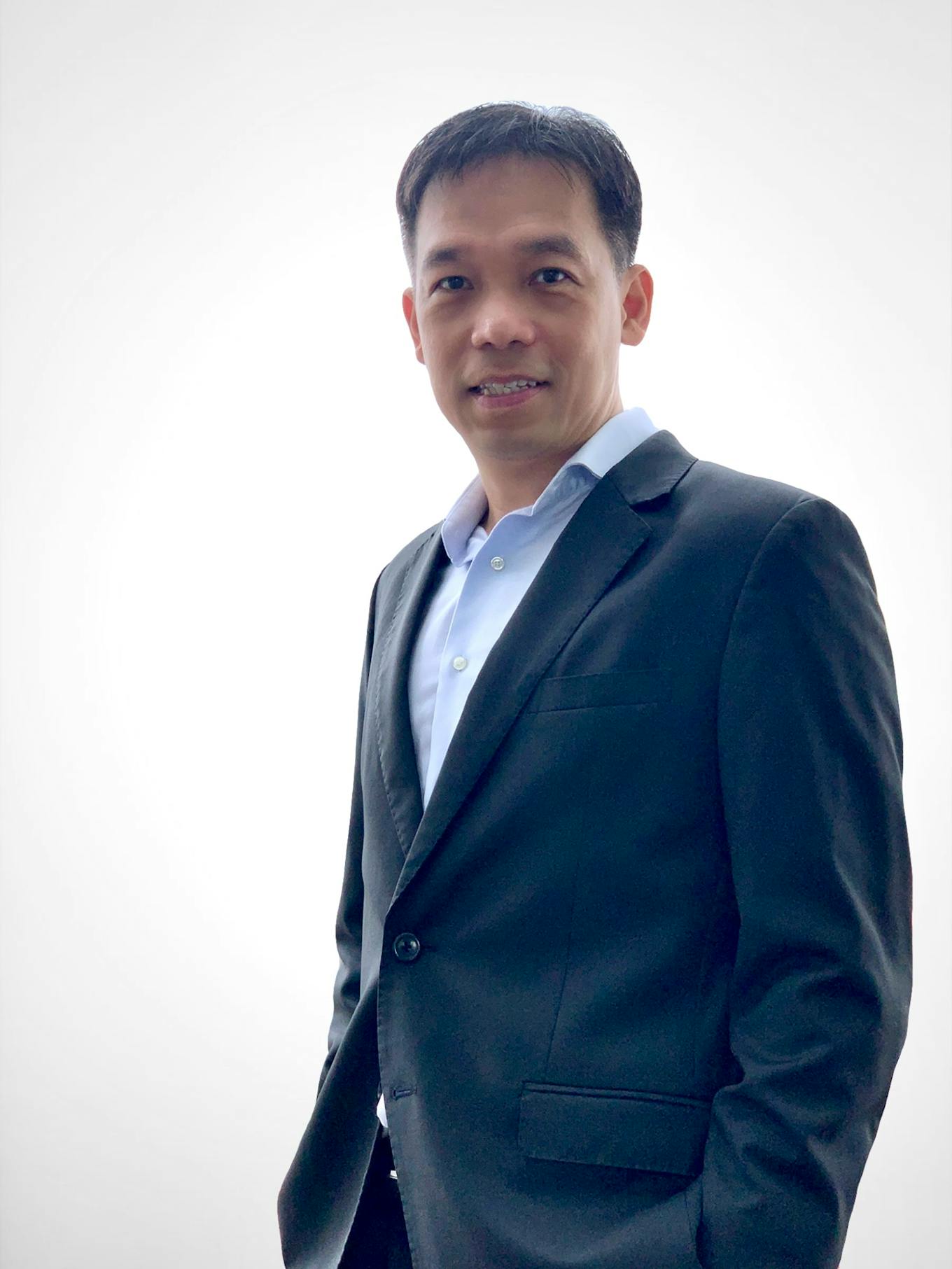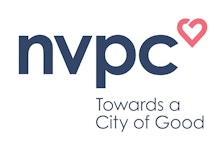There is no substance on the planet that is as fundamental to life as water, says Chong Hin Koh.
Despite how important water is to every individual, lifeform, and living organism on Earth – too many take it for granted until it is too late.
This is a cause for concern, Koh adds, noting that society cannot afford to sit on its hands for much longer in addressing water-related issues.
“Water scarcity is one of the most pressing water challenges – especially in Asia,” said Koh, vice president, Global Lifecycle Services, Emerging Markets, at water technology company Xylem.
“There will be a 40 per cent shortfall between water demand and supply by 2030 in Southeast Asia alone, according to estimates by the Asian Development Bank. This is not only a challenge for our region but for the planet.”
Access to clean water supply and sanitation services remains a huge challenge in Asia Pacific, with an estimated 500 million people in the region lacking access to a basic water supply, and 1.14 billion people without access to sanitation.
The issue of water scarcity is most severe in South Asia, where 347 million children under 18 are exposed to high or extremely high levels of water scarcity, making it the region with the highest number of children exposed to insufficient water, according to a November 2023 report by the United Nation’s Children Agency.
The report also noted that the problem is exacerbated by climate change, which is disrupting weather patterns and rainfall, and decreasing the amount of water available in aquifers, or large underground reservoirs that hold freshwater for human consumption.
Asia Pacific, Koh adds, is particularly vulnerable to the impact of climate change. “Over 200 million people could be displaced by 2050 due to desertification, rising sea levels, and extreme weather events. In our region, we are already witnessing the devastating impact of seasonal storms, typhoons, and floods, leading to the loss of property, and livelihoods, and the displacement of many individuals. This will also disrupt the education of children.”
It is estimated that by 2050, more than half of the global population will live in areas that experience water scarcity for at least one month each year.
This may explain why Koh feels strongly about his roles and responsibilities at Xylem. The company, headquartered in the United States, provides solutions for water and wastewater treatment, water transport, and other water-related challenges across utility, industrial, commercial, and residential markets.
In addition to water scarcity, Koh notes that other areas that require attention include water quality and affordability, and the presence of chemicals in water detrimental to human health.
In Southeast Asia, the agriculture, manufacturing, and waste management industries are threatening water quality in the region due to inadequate wastewater treatment, and excessive chemical use. Waterborne toxic contaminants have been linked to cancers, cognitive and learning disabilities, birth defects, and even diabetes.
Addressing water-related issues requires a stronger, collective effort among governments and the corporate sector, says Koh, who speaks to Eco-Business about the fundamental role of water in our lives and what his company, Xylem, is doing to preserve it for future generations.
Tune in as we discuss:
- The various water-related issues facing Asia and how climate change is exacerbating existing problems
- The consequences of inaction from businesses, governments, and society
- Why solving Asia’s water challenges will require better cooperation and prioritisation of issues
- How companies can define a defined and impactful corporate purpose
- Why leading by example is the most effective way of driving change in organisations

Chong Hin Koh is vice president, Global Lifecycle Services, Emerging Markets, Xylem.
The United Nations estimates that water scarcity will affect half of the world’s population by 2025. In addition to water security, what would you say are some of the most pressing water-related challenges facing our planet in the years ahead?
The first one is water quality. We are seeing more pollutants in our water supply as a large portion of our region’s water comes from underground aquifers or rivers, affecting communities and industries. A study conducted by the UN Environmental Programme, for example, found that 80 per cent of the river water in the Asia Pacific region is already polluted.
The prevalence of a substance called per- and poly-fluoroalkyl substances (PFAS) in our water, which is commonly found in non-stick coatings and food wrappings, is also harmful to human health over long periods.
There is also the challenge of affordability. Despite significant investments in water treatment plants, a large amount of treated water is lost due to leaks and unapproved usage – around 40 billion gallons of clean water is lost due to broken infrastructure and unauthorised use every year.
What is most difficult and complex about solving these problems?
What’s ironic is that many of these challenges can be solved as the technologies already exist.
The funding is available if we can access it, but that depends on the willingness to address these issues, as governments are often overwhelmed and distracted by other challenges.
For example, the need to prioritise building infrastructure – such as roads and highways to develop the economy – often leads to water challenges taking a backseat in many economies. Solving global water challenges should be viewed as a priority, as they can have a direct impact on a nation’s prosperity and even economic growth
Many also do not realise that untreated waste can contaminate groundwater, which can lead to further problems in the future. Neglecting these challenges will burden the health system, leading people to suffer from water-related illnesses.
Both the corporate sector and governments have to find ways of working together to address these challenges.
How do Xylem’s solutions aim to solve these issues?
While water issues are complex, they are interconnected systemic problems, meaning that you can’t solve one part of the problem and hope that it will solve the entire issue.
But this is where Xylem comes in – through our digital solutions and technologies, we can synchronise our pumps, treatment solutions, as well as monitoring and control systems, allowing us to gather and analyse a wealth of data on weather patterns, operating conditions, and so on.
This helps us to advise our customers on how to improve their current systems, predict potential failures, and prepare for one-off events like flash floods.
We also inspect and monitor infrastructure to make sure everything is in good condition. By addressing any issues proactively, we can save a significant amount of money that would otherwise be spent on catastrophic situations.
“
If we fail to secure clean water, future generations will have to spend time and resources on collecting clean, uncontaminated water or purchasing bottled water, taking away from their ability to focus on essential daily needs.
Chong Hin Koh
What are the consequences of inaction from businesses, governments, and society at large?
In the end, not taking action on these water challenges will be a hugely missed opportunity.
Because technologies can already address these issues, we can invest in and fix these challenges – ones that will impact future generations.
If we fail to act now, we are essentially kicking the can down the road and passing problems onto future generations, burdening them with the task of finding solutions on their own.
Ignoring water-related issues can even hinder economic development. Asia Pacific has a young and growing population eager for progress, with a strong desire to make a positive impact. But if we fail to secure clean water, future generations will have to spend time and resources on collecting clean, uncontaminated water or purchasing bottled water, taking away from their ability to focus on essential daily needs.
Xylem’s corporate purpose seeks to help customers solve water through technology, make water more accessible, and to also create a water-secure world. Would you say having a corporate purpose has led to increased business growth and fulfillment among employees, and if so, how?
Having a purpose is crucial, but it is important to understand what a company stands for and the problems it aims to solve.
In our case, we are highly focused on water, and our tagline “let’s solve water,” captures our mission; we aim to address water issues in developed economies and in less developed parts of the world where water challenges are more serious.
Having such a purpose has greatly benefitted us. We’ve attracted professionals from both within and outside the water sector who wish to be part of something that positively impacts the communities they live in. I was also drawn to Xylem because of its mission and purpose, despite coming from the aerospace industry.
When people join Xylem, they are inspired to innovate and make a difference. They are looking for new technologies, solutions, and new ways of doing things. The company now has a portfolio that allows them to do this.
We hope to go beyond creating economic value; we are trying to generate social value too, as both are equally important and what our stakeholders expect from us.
Having a purpose-driven culture has also created a positive cycle; it has motivated individuals to join our team, and in turn, attract more motivated people.
This purpose can help to break down siloes, especially when teams work on cross-disciplinary challenges. We now see employees from engineering, sales, customer support, and various other functions coming together to address the challenges we face, and I believe this has created a more positive company culture.
Beyond the business, could you speak on the societal and environmental impact of your corporate purpose?
We have outlined our 2025 sustainability goals, which aim to make a positive environmental impact.
Our targets include deploying humanitarian aid in over 200 water-related disaster areas, providing water education to improve lives and raise awareness for over seven million people, and giving access to clean water and sanitation solutions to at least 20 million individuals.
We also prioritise employee engagement in volunteer work and donate part of our profits to water-related causes and education.
How can organisations determine a corporate purpose that works best for them and ensure that it permeates the company?
Organisations have to be as practical as possible – not every company operates in an industry where the benefits of their activities are easily visible.
One way to define purpose is by focusing on the company’s culture and how people experience working there, for example through providing employees with opportunities for growth and treating them fairly. A purpose can also be defined by a company’s unique strengths, for instance, being the most efficient producer of a certain component, or the most environmentally friendly producer of a specific plastic.
Companies must ultimately ensure that internal and external stakeholders can relate to and align with their purpose.
You have worked at Xylem for close to six years. What about water security and scarcity personally moves you the most?
The most rewarding aspect of my job is the opportunity to volunteer. Xylem has a partnership with a non-profit called Planet Water Foundation, where we construct water towers that provide clean water to communities. I’ve played a part in building these water towers in India, Indonesia, Thailand, and Vietnam.
What always strikes me is the moment when the tower is ready, inviting children to line up and drink clean water for the first time, and seeing the look on their faces. Most of these kids have likely never had access to clean water before and have been drinking either bottled water or contaminated water – a basic need that many often take for granted, especially in places like Singapore.
But when you go out and volunteer and witness firsthand how a simple solution like a water tower can transform the lives of hundreds and thousands of people, it reinforces the purpose of our work. It reminds me why we do what we do and motivates me to make an even stronger impact.
How can companies and individuals do their part in being responsible when it comes to conserving water?
It’s important to monitor water usage, develop good habits, and use water-efficient appliances. Instead of relying on bottled water, for example, try to boil or filter tap water and even harvest rainwater for washing. Companies can recycle clean water for non-potable purposes and prioritise water conservation in daily operations.
Advocacy can help to raise awareness about water conservation challenges and the importance of access to clean water. Companies can make a difference beyond their communities by advocating for laws that protect water sources.
Xylem was chosen as one of the National Volunteer & Philanthropy Centre (NVPC)’s Champions of Good in 2020 and 2022 before the recognition was expanded into the Company of Good Recognition System this year, which is based on corporate purpose and the five impact areas of people, society, governance, environment, and economic. Could you speak on the significance of this achievement for the company? How has NVPC supported Xylem on your corporate purpose journey and in becoming a Company of Good?
The Champions of Good recognition looks at how companies are doing good in different dimensions, not just water-related initiatives. By being part of this programme, I feel that we have brought water technology to the forefront and become one of the few water companies involved in the programme.
I believe this recognition has elevated us to a national level, allowing us to stand alongside global multinational companies.
NVPC also offers other programmes such as a fellowship programme, which aims to build a pipeline of change agents at different levels. As these programmes continue over the years and attract more participants, we will have a stronger cohort and a larger pool of like-minded individuals committed to making impactful changes.
These programmes and initiatives have also built a sense of community and provided a platform for individuals and companies to partner, learn from each other, and drive positive change.
Is there anything else you’d like to add?
The process of change takes time, and it requires being actively involved and leading by example.
When I first joined Xylem, we already had a CSR programme called Watermark. However, I noticed that employees were not fully engaged and didn’t see the point of participating.
I decided to take it upon myself to actively encourage employees to participate – I led by example by showing them how to reach out to partners, organising activities, and inviting them to join in. Gradually, people started to see that leadership was genuinely interested, and this helped break down the barriers and scepticism. They began to realise that they, too, could contribute and make a difference.
As employees started participating, they started to see the meaningful impact they could make, and this created a hunger and desire to do more. Nowadays, whenever we organise any volunteering or CSR activities, we see more employees eager to contribute their time. It took us a few years to build this culture, but once you establish something like this, it becomes self-reinforcing.
I encourage all companies to start somewhere – no matter how small – and to stay committed. You will see a change and engagement grow within your organisation over time.
Learn more about the Company of Good Recognition System here.
The transcript has been edited for brevity and clarity.
























